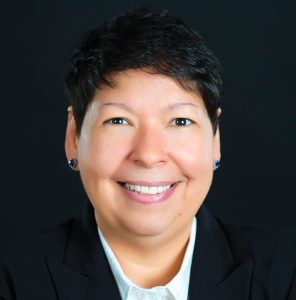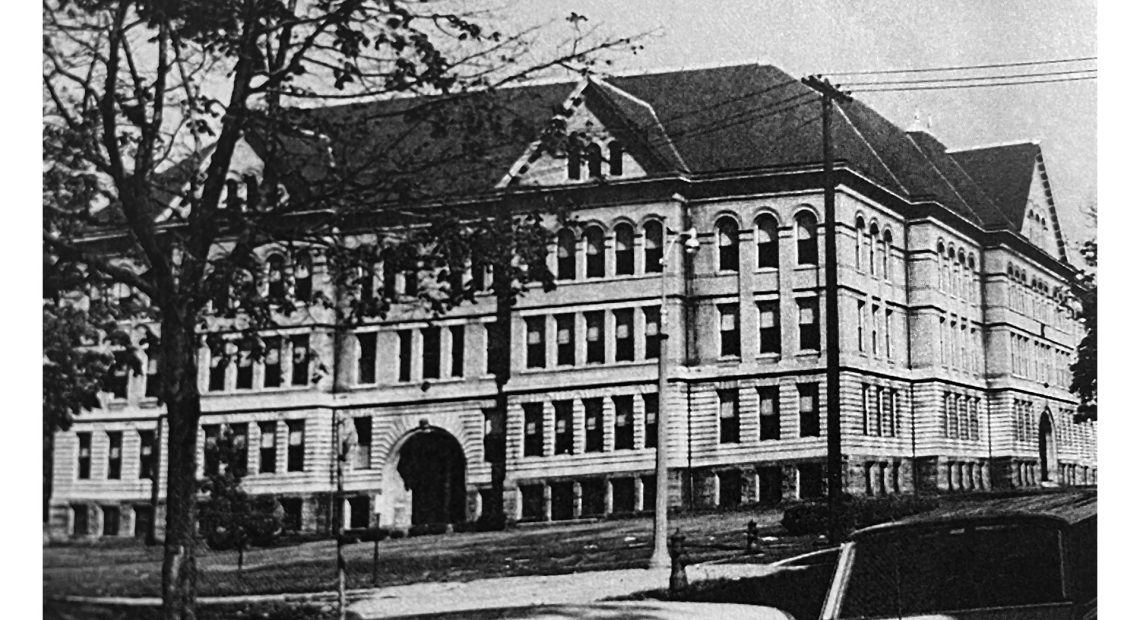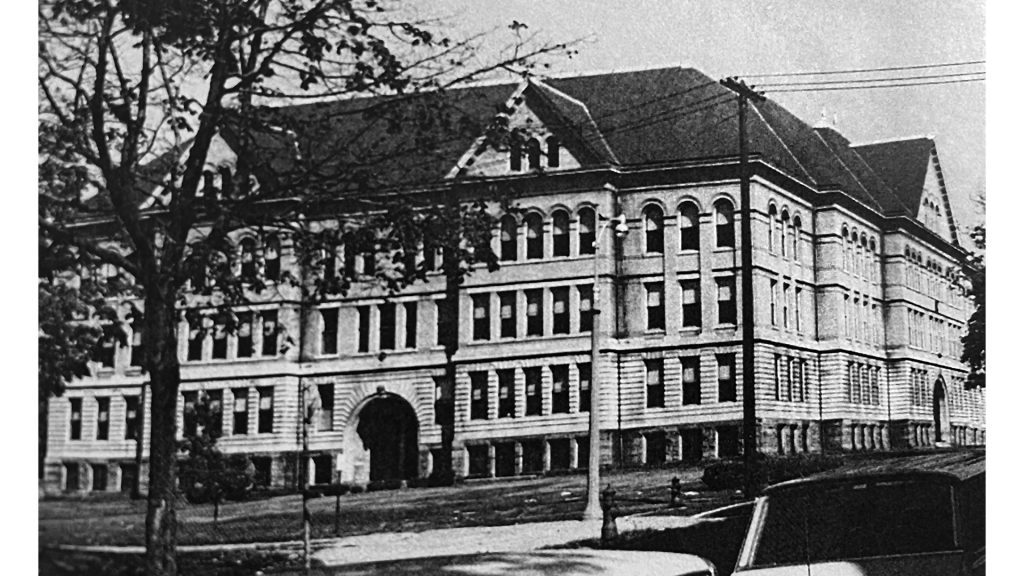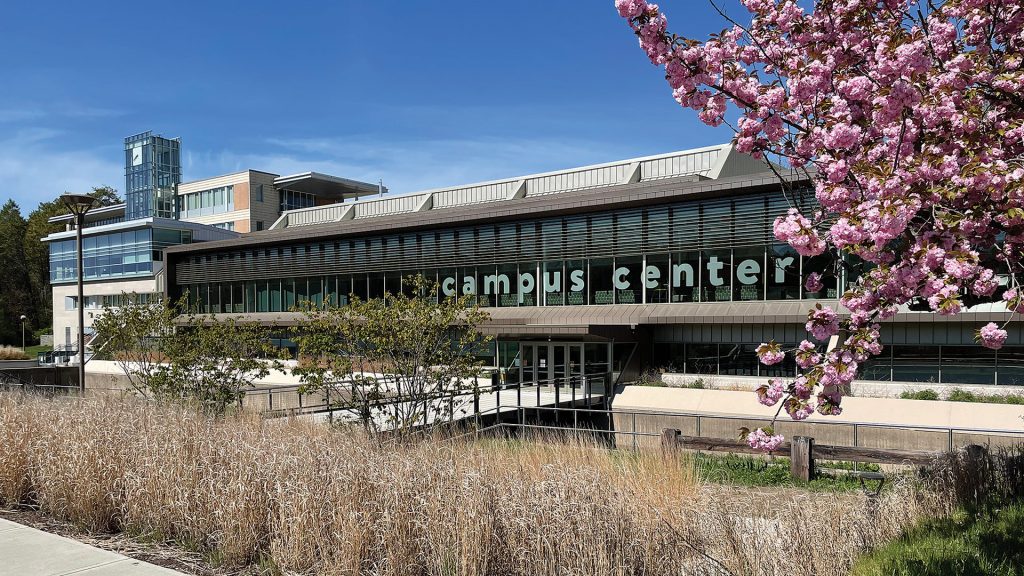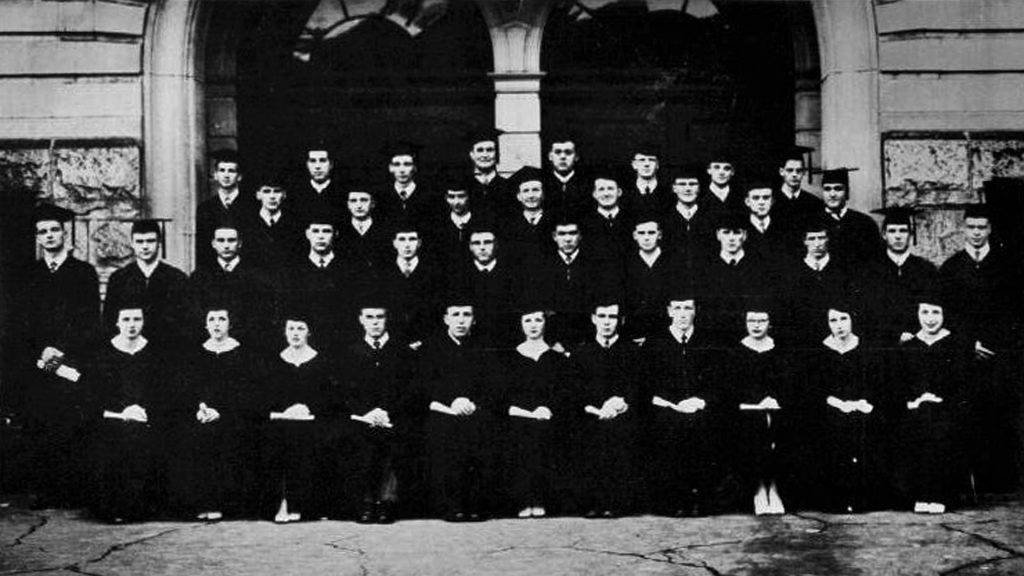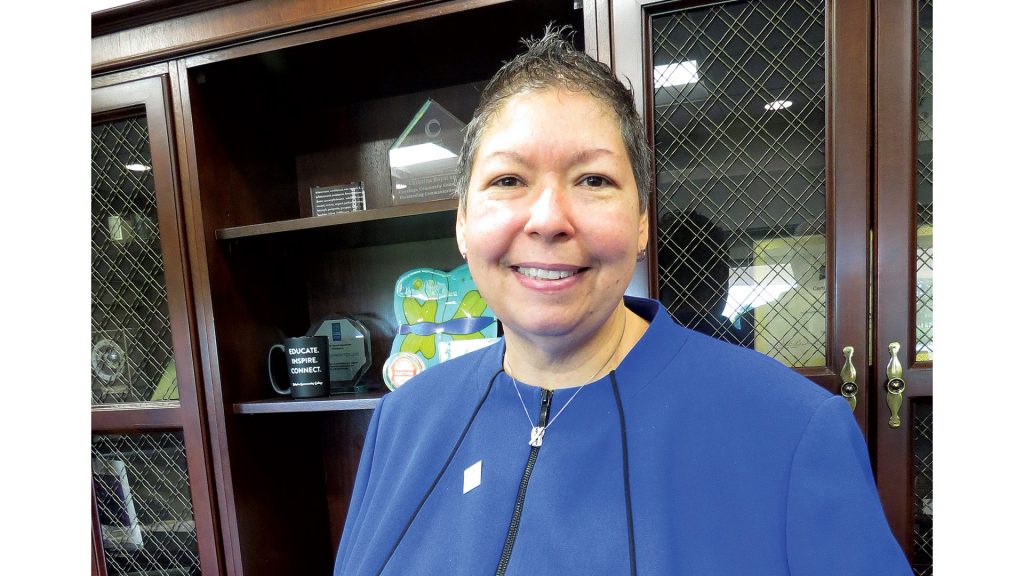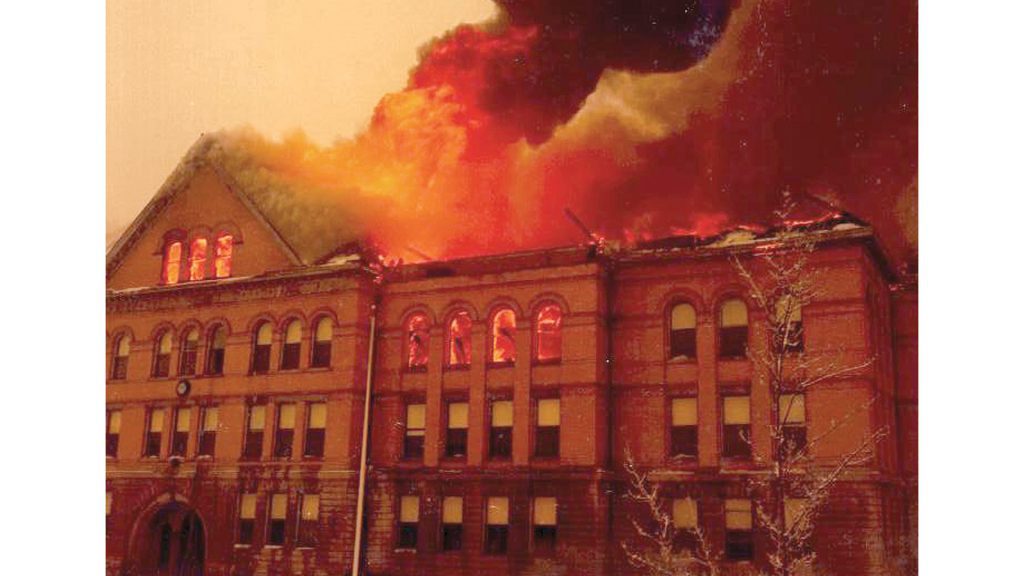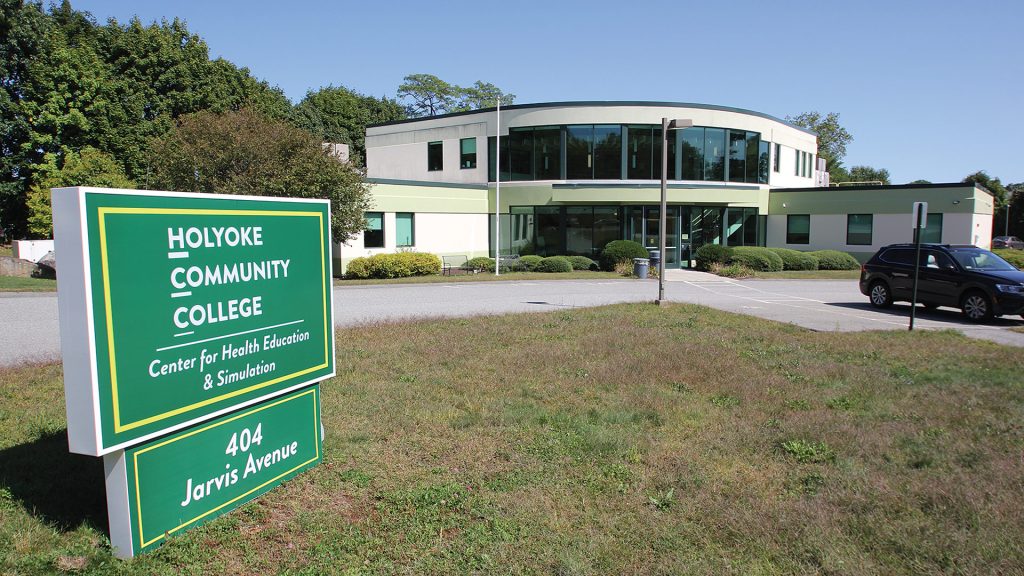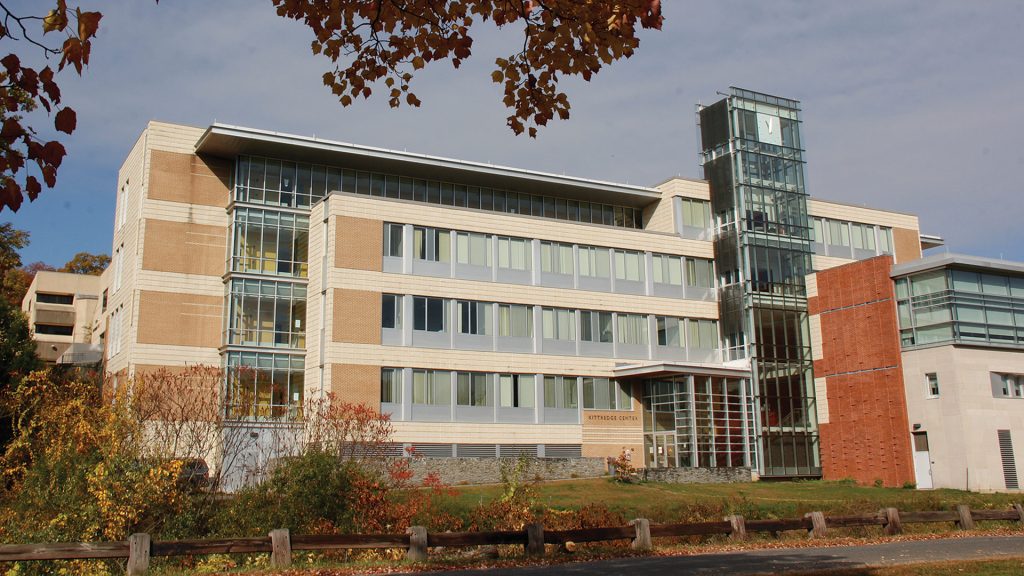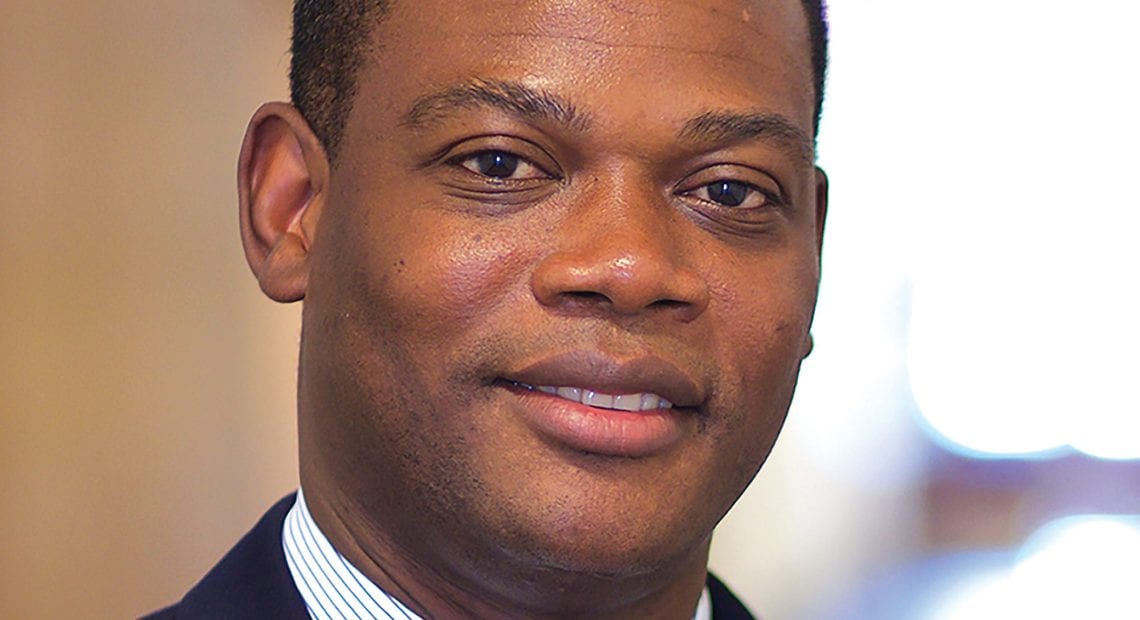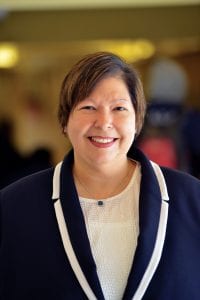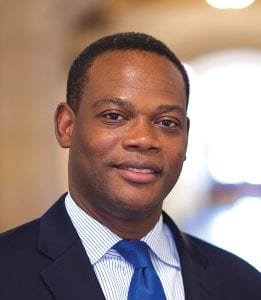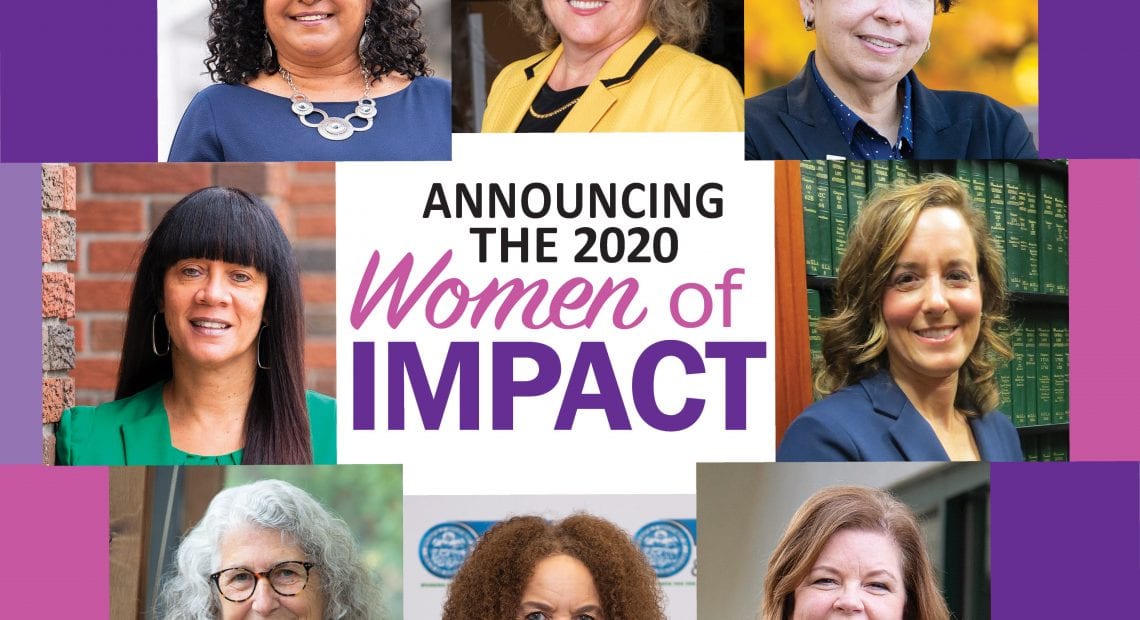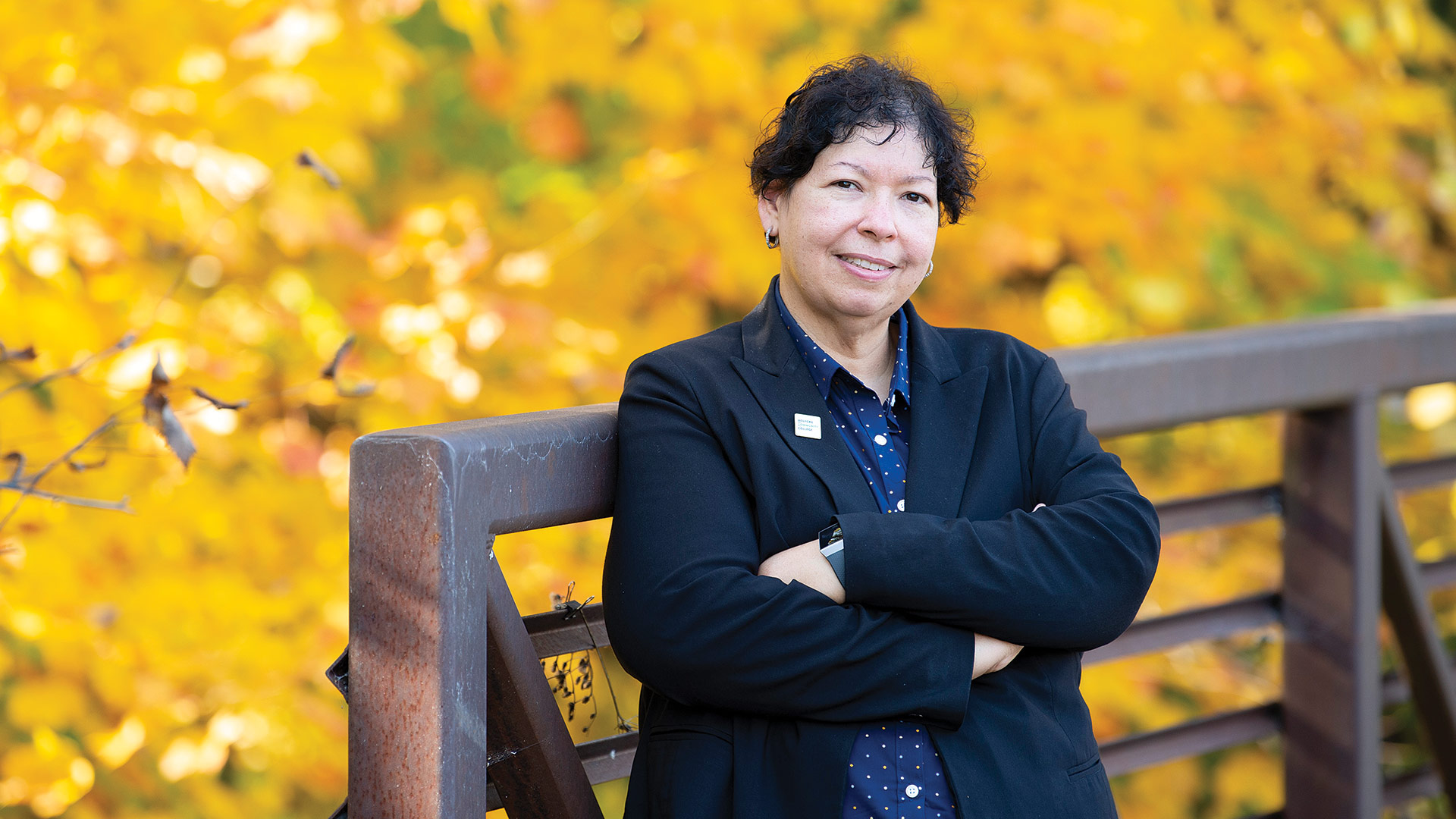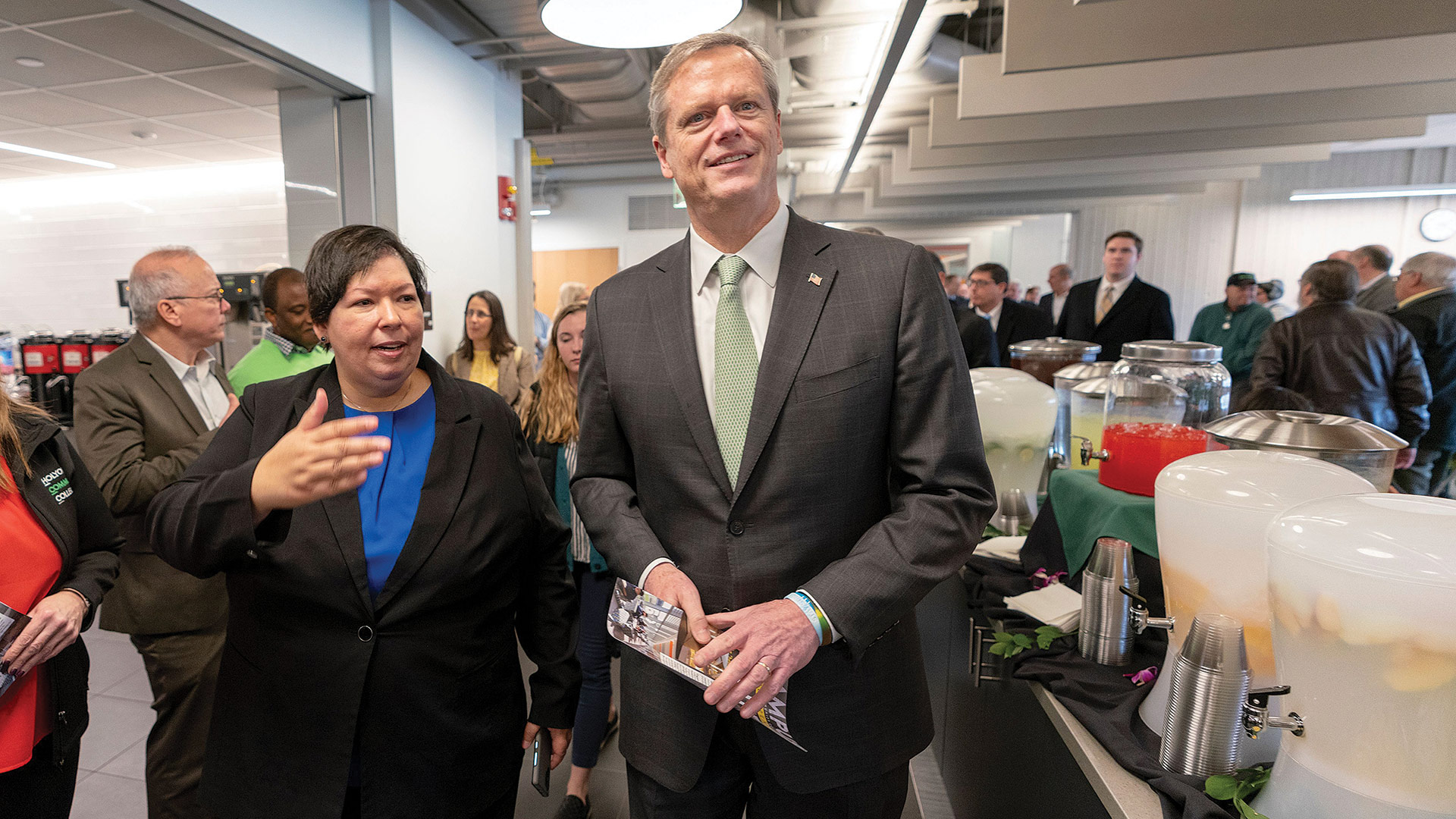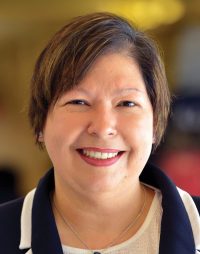Looking Back — and Ahead
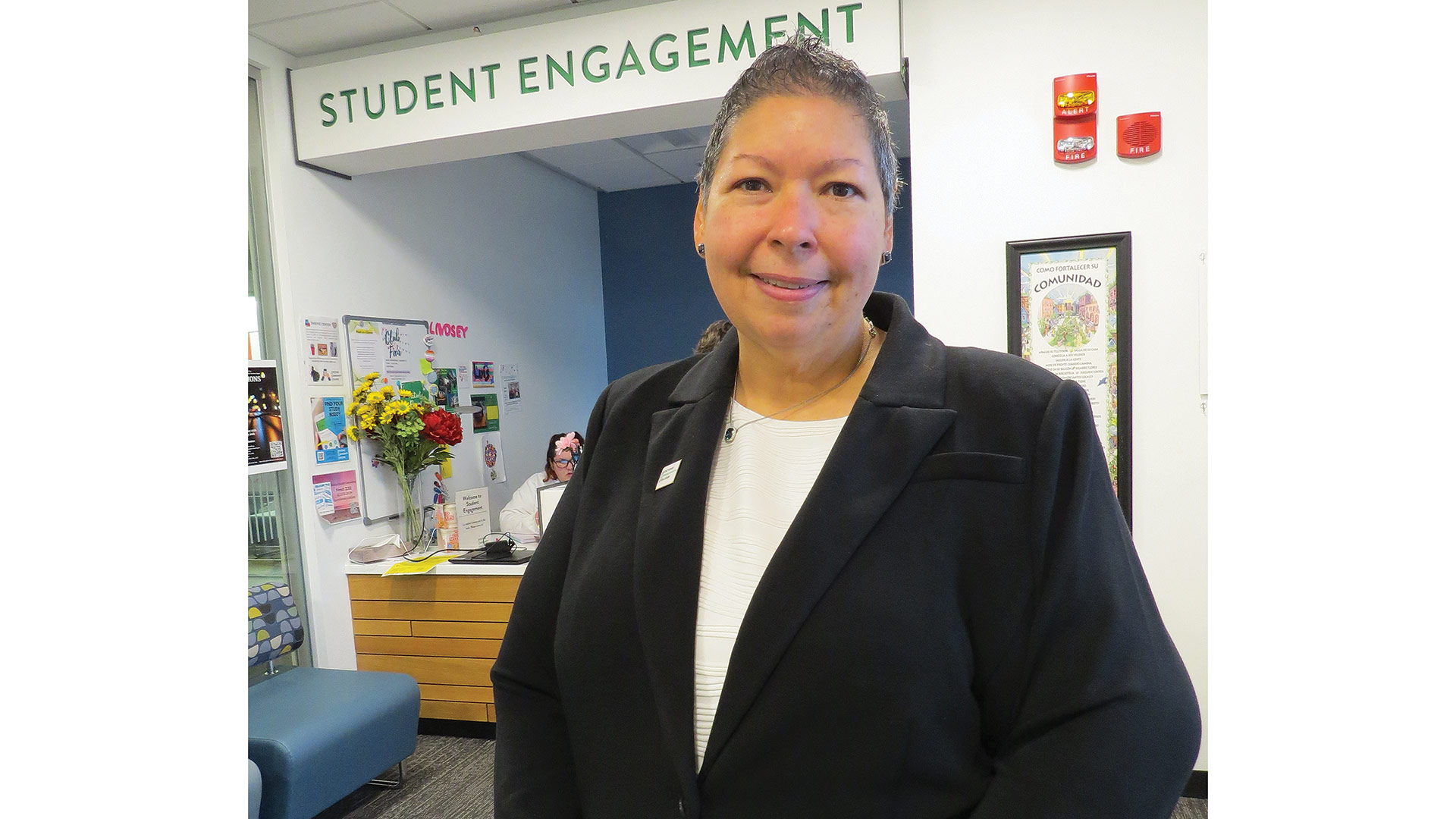
HCC President Christina Royal
Christina Royal wanted to make one thing clear.
Her decision to step down as president of Holyoke Community College (HCC) later this year has nothing whatsoever to do the Great Resignation.
“The Great Resignation, to me, reflected people who were in various stages of unhappiness with their respective roles and looking for a change,” said Royal, the school’s fourth president, who arrived on campus in 2016. “I love this college, and I love my position.”
Elaborating, she said her decision is about finding the space to decide what she wants to do next, and at this point in time, she really doesn’t know what that might be, other than some travel (destinations still to be determined), planning her wedding, and what she calls “voluntary unemployment” until at least the start of 2024.
In a wide-ranging interview during which she looked back as well as ahead, Royal talked at length about the past three years, especially, and what it has been like, personally and professionally, to lead an institution like HCC through the pandemic. She said it was a tremendous, and exhausting, learning experience, one in which she and members of her team had to reach down and find the determination and imagination to see the college and its students, staff, and faculty through an unprecedented crisis, during which the school was mostly closed to the public for more than a year.
Indeed, while talking about the length of her tenure at HCC — which will be close to seven years by the time she steps down this summer — Royal jokingly asked if there is a “multiplier” for the COVID era, a roughly two-and-a-half-year stretch that probably seemed like it was exponentially longer.
She likened that period to another one in the school’s long history, a devastating fire that destroyed its one building in 1968. Royal told BusinessWest that she has read and heard a lot about those days, and she believes they were in many ways similar to what the college and its leadership endured starting that day in March 2020 when the governor shut down the state.
“The Great Resignation, to me, reflected people who were in various stages of unhappiness with their respective roles and looking for a change. I love this college, and I love my position.”
“I never thought that in my lifetime and during my tenure there would be another moment to rival that one, but the global pandemic did,” she said. “And being in a leadership capacity during such uncertain times, you tap all of the skills that you’ve developed over a lifetime to be able to learn and lead in such times.”
While efforts to lead the school through the pandemic have in many ways dominated her tenure, she said there have been many important accomplishments, especially in the broad realms of diversity, equity, and inclusion, as well as addressing student basic needs, ranging from food to housing to childcare.
With the former, she said the school has made significant strides, and on many different levels.
“We have really prioritized equity at all levels within our organization, including at the board level, with a statement on anti-racism, and also with the great work of our facility and staff. We’ve invested financial resources to grow our wrap-around support services for our under-represented students, and we continue to help all of our students be successful regardless of what their starting point is, who they are, and what their background is.”
With the latter, Royal, named a Woman of Impact by BusinessWest in 2020 for her work at the school and within the community (the two often overlap), said there have been some important and innovative steps forward, and several ‘firsts.’
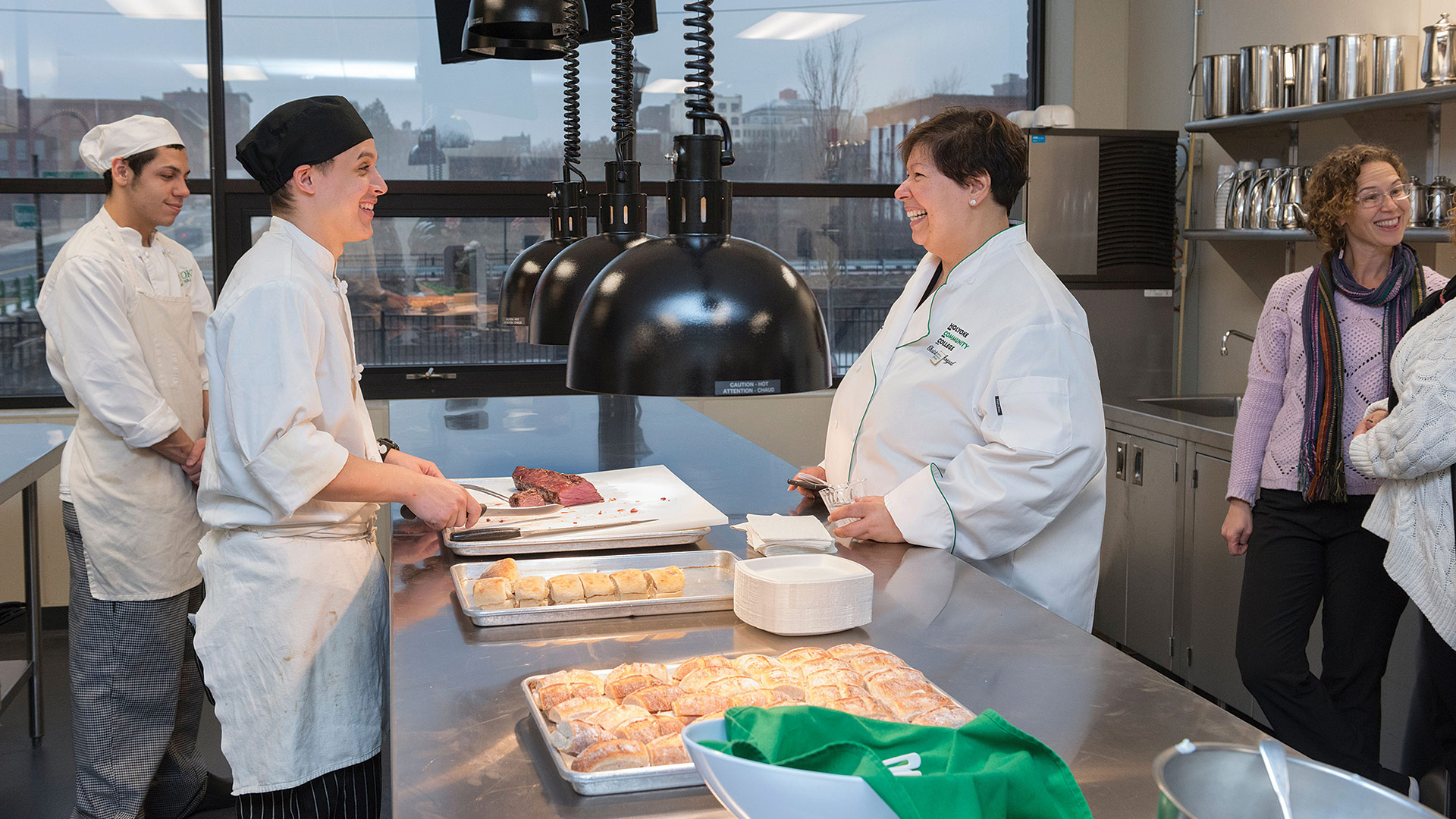
Christina Royal meets with students at the HCC MGM Culinary Arts Institute, which opened its doors in 2019.
These include the Homestead Market, at which HCC became the first institution of its kind in the Commonwealth to accept SNAP benefits.
“This was pretty significant — we had to get federal approval from the USDA to be able to accept SNAP benefits,” she told BusinessWest. “To be able to do that on a college campus is innovative and an example of how we listen to students and respond to what we’re hearing.
“Our students who found themselves food-insecure and receiving SNAP benefits said, in essence, ‘why can’t I use my benefits on campus?’” she went on. “And we said, ‘good question.’”
As for her own future and what the next chapter might be professionally, Royal said that is … still to be determined. And it may not be determined for a while yet. Indeed, while she has already received some invitations to look at opportunities, she is determined to take her time — and take at least the balance of 2023 off — and find the right fit.
In the meantime, she is focused on the remainder of her tenure at HCC, continuing the work that has been done there and preparing the school for a successful transition in leadership.
Court of Opinion
As she talked about what she and her administration have been able to accomplish over the past several years, Royal made sure she didn’t leave out pickleball.
Indeed, under her direction, and in response to the meteoric rise in popularity of the game — a combination of tennis, badminton, and ping pong — the college created several pickleball courts in the Bartley Athletic Center on campus.
“I was looking for something to burn off stress, and as a former tennis player, I really enjoyed the racket sports, and this is something that’s a little easier on my knees,” she said, adding that a former trustee of HCC turned her on to the sport. “We have seven courts here now, and the response from the community has been tremendous; people are calling and asking if we can expand the hours. I think we’ve really tapped into an outlet that people are looking for.”
Beyond pickleball, Royal can provide a long list of accomplishments and milestones that have happened during her tenure. It includes the college’s 75th-anniversary celebration in 2022— put off for one year because of the pandemic — as well as the 50th anniversary of the HCC Foundation; the opening of a new life-sciences building and the HCC MGM Culinary Arts Institute, located in a renovated mill in the city’s downtown; and extensive renovations to the Campus Center, which reopened just a few weeks before the pandemic forced it to go dark once again.
Beyond infrastructure and new academic programming, Royal said the biggest strides made at HCC have come in the areas of diversity, equity, and inclusion, and meeting those basic needs of students that she mentioned earlier.
As for meeting students’ basic needs, Royal said there have been many steps forward, perhaps none as significant, and symbolic, as the Homestead Market and the acceptance of SNAP benefits.
Today, other schools and other institutions are looking to follow suit, she said, and they are looking at HCC as a leader in what Royal called “hunger-free college campuses.”
“We’ve used this as an opportunity to be responsive to students, and also to be able to further our work with basic student needs,” she noted, adding that there was a prime motivating force behind the school’s perseverance in this matter: “it’s hard to educate a hungry student.”
“This has been an incredible journey … I think about how much I’ve grown in this role. I never imagined leading through such uncertain times, with a pandemic that few saw coming and for which there was no playbook.”
As noted earlier, meeting student needs goes well beyond food, said Royal, who has been at the forefront of many such efforts, from housing and internet service to an important recent addition to the portfolio: the President’s Emergency Fund, which is … well, just what it sounds like, a fund to help students in emergency situations.
They can apply quickly and easily, said Royal, and they get a response within 24 hours.
“We cut a check immediately,” she said, noting that funding for the program was set up through the school’s foundation and has grown through the support of alumni and other donors to the college, including faculty and staff. “If you’re experiencing an emergency, that means you don’t have weeks to wait for financial resources to come in. And this fund has made a huge difference.”
Overall, these various programs reflect an operating philosophy at the college that, especially in a community like Holyoke, students need more than the right mix of courses to succeed — however they might define success.
“When we started our strategic plan, we defined our basic needs as encompassing four key priorities — food insecurity, housing insecurity, housing, and childcare,” she explained. “And in the process of addressing those, we had a few others emerge over time, including mental-health support and digital literacy.
“We knew that, in order to really support students, not only through wrap-around services but particularly with other barriers to them successfully completing, we had to address these other basic needs,” she went on. “The public at large tends to think of colleges as needing to focus on academics and the curriculum in order to set up students for success, and that is certainly a key priority — we’re focused on having the academic rigor that can allow for students to transfer successfully to our four-year colleges and universities. And in doing so, we needed to set students up outside of the classroom for success, and that is helping to address the other barriers that sometimes hinder their ability to stay continuously enrolled.”
Forward Thinking
The decision to move on from this work and to the next stage of her career came at a time of great change and reflection in her life, said Royal, who turned 50 last summer, traveled to Bali with her partner for an extended vacation, got engaged, and, amid all that, started to think about what’s next.
“I didn’t necessarily want to leave HCC … it was more about creating space for me to expand and engage in some creative projects and simply have some space,” she noted. “This job is an intense job, and I wanted to give it its due respect. And as I turned 50, I thought, ‘here is an opportunity for the next chapter.’ But first, I wanted to have some space to figure out what that might look like. So I didn’t want to rush into something; if I wanted to move into another presidency or another CEO position, I could have easily done that, but I wanted to focus on HCC.
“I’ve had a lot of opportunities come my way, but it felt too soon to commit myself to something else because I wanted to take a break,” she went on. “And that’s very important to me; I’ve been running hard for a number of years.”
Indeed, she has, with the pandemic years, especially, testing her in ways she could not have imagined. And they have left her reflecting on how those years have changed education, the world, and, yes, what she wants to do next.
“I’m a very intentional and reflective leader, so I make this shift with a great deal of intention around creating space for reflecting on this extremely unique and significant period in our lifetime — at least in my lifetime,” she said. “This has been an incredible journey … I think about how much I’ve grown in this role. I never imagined leading through such uncertain times, with a pandemic that few saw coming and for which there was no playbook.”
With that, Royal returned to 1968 and that fire that forever changed the college, and drew some direct comparisons to how the two disasters, more than 50 years apart, forced leaders to challenge themselves — and others — to find answers to complex problems.
Indeed, there were large amounts of learning and leading over the past three years or so, she went on, regarding everything from teaching from a distance — and supporting students at a distance — to simply reopening the college when the conditions allowed.
“It made me a better leader, and it certainly took a lot out of me,” she said of that period, adding that such experiences help explain why a large number of college presidents have moved on from their jobs in recent months, and more have announced intentions to do so.
For Royal, the pandemic provided large doses of perspective on what she could do next — and should do next.
“I feel excited for the next chapter, I feel excited about the possibilities, and perhaps something the pandemic did for me was invite me to expand those possibilities in my imagination of what can come next,” she said. “It was one of the most palatable reminders of just how short life is, and that in the blink of an eye, we’re dealing with an international crisis and health threats that were unprecedented in my lifetime.
“All that had a significant impact in shifting my perspective on what I want to do with the second half of my life,” she went on, adding that she won’t get around to figuring that out for a while.
After all, she still has a college to lead.



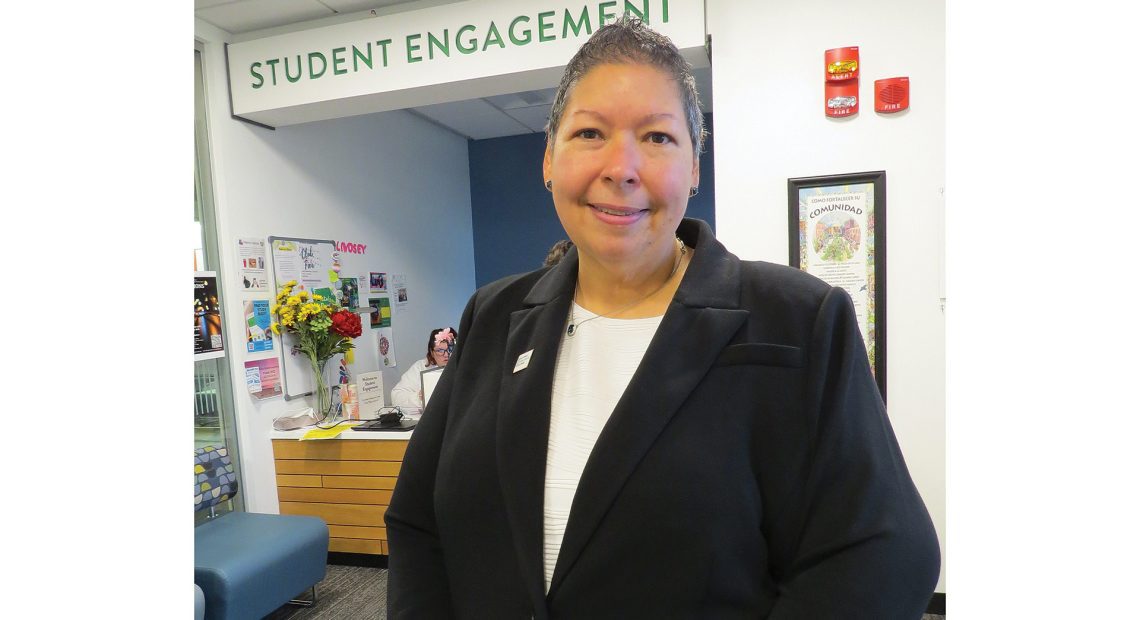

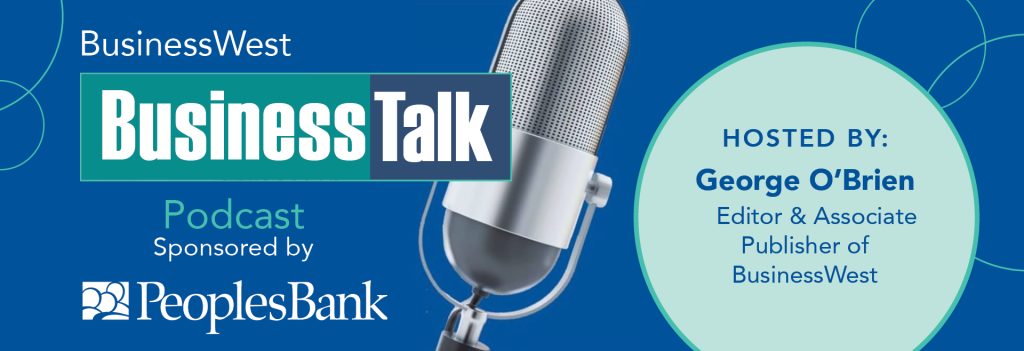 We are excited to announce that BusinessWest has launched a new podcast series, BusinessTalk. Each episode will feature in-depth interviews and discussions with local industry leaders, providing thoughtful perspectives on the Western Massachuetts economy and the many business ventures that keep it running during these challenging times.
We are excited to announce that BusinessWest has launched a new podcast series, BusinessTalk. Each episode will feature in-depth interviews and discussions with local industry leaders, providing thoughtful perspectives on the Western Massachuetts economy and the many business ventures that keep it running during these challenging times.